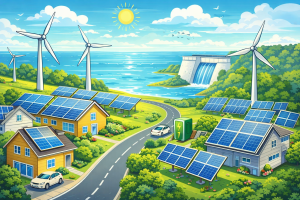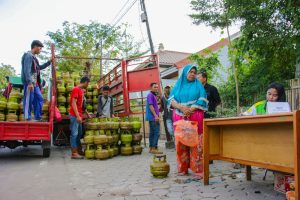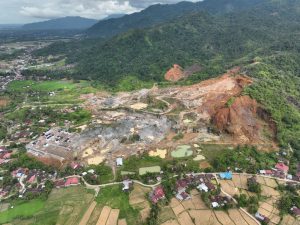Jakarta – Indonesia plans to attend the 30th Conference of the Parties (COP30) in Belém, Brazil, on 10–21 November 2025, bringing a more measured strategy focused on climate finance justice. The government stated this on Friday, 31 October. Carbon diplomacy, strengthening the international carbon market, and balancing funding between mitigation and adaptation are the Indonesian government’s top priorities.
Environment Minister Hanif Faisol Nurofiq explained that this year’s meeting has special significance, as it marks the 10th anniversary of the Paris Agreement. However, global conditions remain out of line with the target of limiting temperature increase to 1.5 degrees Celsius. “Indonesia is not just attending, but bringing concrete efforts for a fair and sustainable energy transition,” he said.
Second NDC and lower emission targets for 2030
Hanif said the Second Nationally Determined Contribution (SNDC) update released at the end of October was an essential milestone for reducing peak emissions by 2030. The government has prepared two Low Carbon Compatible with Paris Agreement (LCCP) scenarios, with projected emission reductions of 8–17.5 per cent.
This step is reinforced through a collaborative cross-sector work agenda and six-monthly evaluations to ensure that mitigation efforts remain on track. The government has positioned the forestry sector as the primary driver of emissions reduction, while awaiting the acceleration of the energy transition. One of the strategic agendas is the management of 12.7 million hectares of forest for a green economy based on communities and local corporations.
“Indonesia’s priorities at COP30 include strengthening international partnerships and access to an integrity-based carbon market, advocating for green economic growth, and balanced climate financing between mitigation and adaptation,” Hanif stated.
Carbon diplomacy for global market access
The Indonesian President’s Special Envoy for Climate and Energy, Hashim Sumitro Djojohadikusumo, added that international cooperation is a key instrument for supporting emission reduction ambitions. “We are promoting carbon diplomacy and cross-sector carbon trading so that Indonesia’s carbon units are accepted globally,” he said.
To strengthen market credibility, Indonesia has established mutual recognition agreements (MRAs) with several international institutions, including Japan, Gold Standard, and Verra. This cooperation provides opportunities for national carbon credits to be traded more widely and at higher values.
At COP30, the Indonesian Pavilion carried the theme “Accelerating Substantial Actions of Net Zero Achievements through Indonesia High Integrity Carbon.” The pavilion was intended to serve as a meeting place for policymakers, industry players, and the international carbon market, while also building a transparent and sustainable carbon-trading ecosystem. (Hartatik)
Banner photo: Environment Minister Hanif Faisol Nurofiq during a mangrove planting event, October 27, 2025. Source: Environment Ministry.















